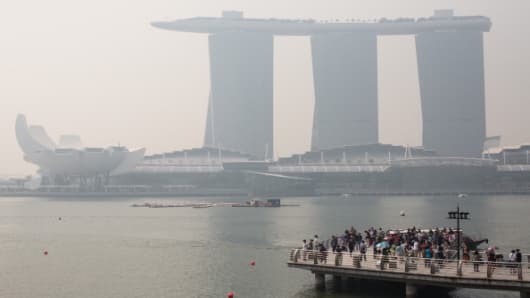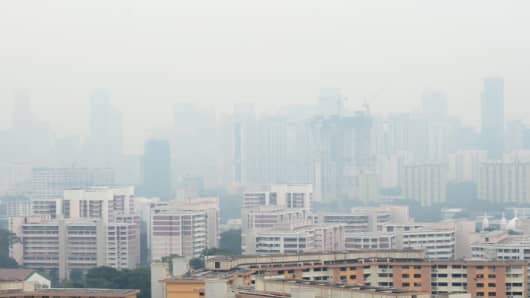Smog so dense you can hardly see and people walking around with face masks on: scenes often associated with polluted Beijing actually describe Singapore, where the air quality has reached "hazardous" levels this week following burning to clear land in neighboring Indonesia.
Singapore's Pollutants Standards Index hit 321 late on Wednesday, the highest since Southeast Asia's prolonged haze crisis in 1997-1998 and well above the unhealthy threshold of 100.
Economists say the pollution levels are a bad omen for the economy which has been grappling with slow growth and high inflation.
(Read More: Singapore's Air Turns "Hazardous")
A number of firms across the city-state have told workers to take precautions. Fast-food chain McDonald's has stopped its delivery service, while significantly for food-loving Singapore, usually bustling cafes and restaurants have thinned out as consumers take the government's advice and stay indoors.
"I looked forward to spending time in the green spaces in Singapore, but I haven't been able to do that, I've been stuck inside," said 39-year old British tourist Wendy McDonald, who is visiting Singapore with her family.
"There have been times when we would have normally planned to eat out but we've decided to stay in," she said. "I am really worried about it, I don't want to expose my kids to it, and I've developed a cough."
Worse This Time
The Singapore haze, an annual weather phenomenon caused by Indonesian crop burning, normally arrives around August to September, but this year the haze has come early and is much worse than normal.
The health impacts of the haze, which has a lingering smell of burnt wood, are a huge concern for local residents.






